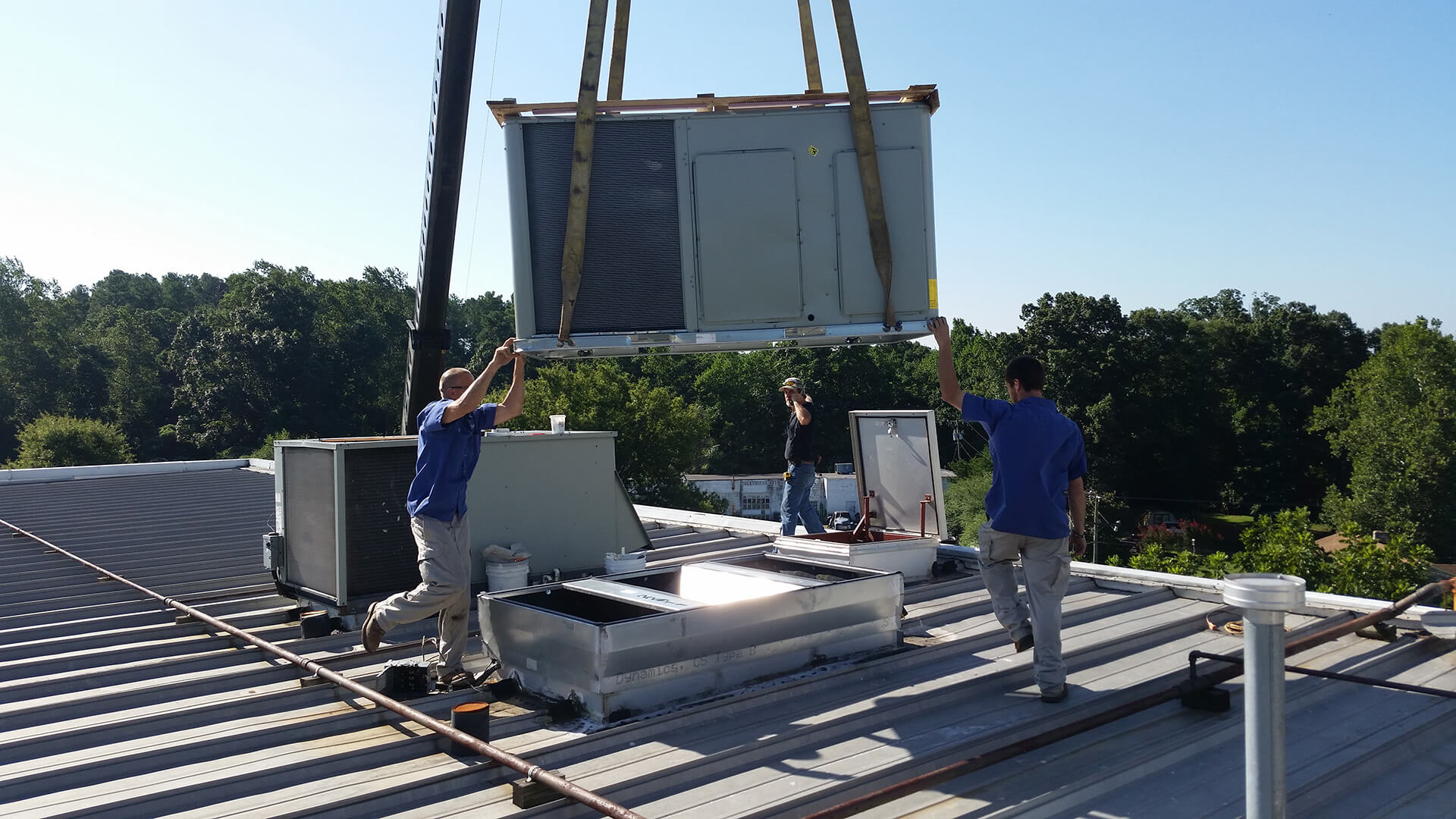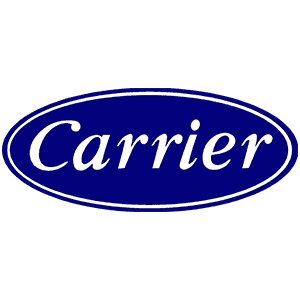Residential & Commercial Air Conditioning
 You might have run into AC problems at your home, but a business or commercial property is another story. If you need to repair your commercial HVAC, you might think to use your experiences with your residential unit as a reference point. While both residential and commercial HVAC units operate on the same principles and share many similarities, commercial units have some key differences that make the more than just bigger versions of the AC in your house.
You might have run into AC problems at your home, but a business or commercial property is another story. If you need to repair your commercial HVAC, you might think to use your experiences with your residential unit as a reference point. While both residential and commercial HVAC units operate on the same principles and share many similarities, commercial units have some key differences that make the more than just bigger versions of the AC in your house.
Once you know the differences between the two, you’ll be able to find a professional who is qualified to get the HVAC for your business up and running again.
We help Central Texas residents with their cooling needs.
Call Us (832) 283-0533
Differences Between Commercial HVAC Vs. Residential HVAC
Commercial HVAC units are designed to cool buildings far larger than the typical home, which requires a radically different approach than residential HVAC units as well as higher costs of AC maintenance.
Size
Given that commercial HVAC is used to cool far larger spaces, units tend to be far larger than their residential counterparts. Some of their components are entirely different than residential HVACs, or they might have more of them. They have greater variability in size as well since residential units come in standardized sizes while commercial units are often custom-built for their building. In addition, instead of just one thermostat, commercial units may have many units spread throughout the building.
Location
Residential HVAC units tend to be positioned on ground-level outside the home while commercial units are usually located on the roof. With commercial units, their position on the roof allows technicians to work on them without disturbing the normal operations of a business. The roof also provides security to the HVAC unit, protecting it from vandalism or theft. In addition, given their size, the roof is usually the only place where an HVAC system could be stored economically.
Split Vs. Packaged Units
HVAC systems consist of separate heating and cooling systems, but these are organized differently in residential and commercial systems. For example, in residential systems, the condenser, condenser fan, and compressor are stored outside in one unit while the condensate drainage, blower, and evaporator are located inside. However, in a commercial HVAC, these systems are combined into one cabinet. This makes them easier to access but also makes them harder to repair.
Standalone Vs. Modular
Residential HVAC units are sold as standalone units, which means that individual subsystems can’t be modified. For example, if you have a serious enough problem with your condenser, you might have to replace your compressor as well. However, commercial HVAC systems are modular, which means you can replace individual subsystems as needed. This also means that you customize, expand, or reduce the size of a commercial HVAC depending on the needs of your business.
What Is The Cost Difference Between Residential And Commercial HVAC Repairs?
Home Advisor reports that homeowners spend an average of $325 on each HVAC repair, with most homeowners spending between $163 to $650. The total cost will depend on a variety of factors, including the specific problem as well as the brand and type of HVAC unit. However, this can vary widely depending on your home’s location, the company you choose, and the time of year. Given the standardization of residential units, it can make sense to look to averages when planning for future expenses.
Commercial HVAC systems have much greater variability than residential systems, so it’s more useful to think of a system for estimating costs rather than an average. It can be helpful to think of the service contract your technician is offering and then to divide that amount by the hours they intend to work, the number of visits, and the number of parts they will be servicing. Given the specialized knowledge required to repair commercial systems, the labor cost may be greater than what you would expect for a commercial repair. On the other hand, you might be able to take advantage of tax credits which can defray the cost of your maintenance.
A commercial HVAC is much more complex than its residential counterpart, so it’s important that you seek our qualified professional who is experienced with repairing them. Many technicians charge a flat fee just to inspect your HVAC so you can save yourself some time and money by learning about your HVAC unit to better help identify the problem. You can also reduce costs by conducting regular maintenance on your HVAC system and by keeping records of all previous repairs. Most HVAC systems are designed to last anywhere from 15 to 25 years, and with the right care, you can keep yours running for years.
Schedule your free estimate by calling (832) 283-0533 now.
Discover why clients trust their homes to our Houston heating services. We are ready to come and assist you!
 You might have run into AC problems at your home, but a business or commercial property is another story. If you need to repair your commercial HVAC, you might think to use your experiences with your residential unit as a reference point. While both residential and commercial HVAC units operate on the same principles and share many similarities, commercial units have some key differences that make the more than just bigger versions of the AC in your house.
You might have run into AC problems at your home, but a business or commercial property is another story. If you need to repair your commercial HVAC, you might think to use your experiences with your residential unit as a reference point. While both residential and commercial HVAC units operate on the same principles and share many similarities, commercial units have some key differences that make the more than just bigger versions of the AC in your house.
Once you know the differences between the two, you’ll be able to find a professional who is qualified to get the HVAC for your business up and running again.
We help Central Texas residents with their cooling needs.
Call Us (832) 283-0533
Differences Between Commercial HVAC Vs. Residential HVAC
Commercial HVAC units are designed to cool buildings far larger than the typical home, which requires a radically different approach than residential HVAC units as well as higher costs of AC maintenance.
Size
Given that commercial HVAC is used to cool far larger spaces, units tend to be far larger than their residential counterparts. Some of their components are entirely different than residential HVACs, or they might have more of them. They have greater variability in size as well since residential units come in standardized sizes while commercial units are often custom-built for their building. In addition, instead of just one thermostat, commercial units may have many units spread throughout the building.
Location
Residential HVAC units tend to be positioned on ground-level outside the home while commercial units are usually located on the roof. With commercial units, their position on the roof allows technicians to work on them without disturbing the normal operations of a business. The roof also provides security to the HVAC unit, protecting it from vandalism or theft. In addition, given their size, the roof is usually the only place where an HVAC system could be stored economically.
Split Vs. Packaged Units
HVAC systems consist of separate heating and cooling systems, but these are organized differently in residential and commercial systems. For example, in residential systems, the condenser, condenser fan, and compressor are stored outside in one unit while the condensate drainage, blower, and evaporator are located inside. However, in a commercial HVAC, these systems are combined into one cabinet. This makes them easier to access but also makes them harder to repair.
Standalone Vs. Modular
Residential HVAC units are sold as standalone units, which means that individual subsystems can’t be modified. For example, if you have a serious enough problem with your condenser, you might have to replace your compressor as well. However, commercial HVAC systems are modular, which means you can replace individual subsystems as needed. This also means that you customize, expand, or reduce the size of a commercial HVAC depending on the needs of your business.
What Is The Cost Difference Between Residential And Commercial HVAC Repairs?
Home Advisor reports that homeowners spend an average of $325 on each HVAC repair, with most homeowners spending between $163 to $650. The total cost will depend on a variety of factors, including the specific problem as well as the brand and type of HVAC unit. However, this can vary widely depending on your home’s location, the company you choose, and the time of year. Given the standardization of residential units, it can make sense to look to averages when planning for future expenses.
Commercial HVAC systems have much greater variability than residential systems, so it’s more useful to think of a system for estimating costs rather than an average. It can be helpful to think of the service contract your technician is offering and then to divide that amount by the hours they intend to work, the number of visits, and the number of parts they will be servicing. Given the specialized knowledge required to repair commercial systems, the labor cost may be greater than what you would expect for a commercial repair. On the other hand, you might be able to take advantage of tax credits which can defray the cost of your maintenance.
A commercial HVAC is much more complex than its residential counterpart, so it’s important that you seek our qualified professional who is experienced with repairing them. Many technicians charge a flat fee just to inspect your HVAC so you can save yourself some time and money by learning about your HVAC unit to better help identify the problem. You can also reduce costs by conducting regular maintenance on your HVAC system and by keeping records of all previous repairs. Most HVAC systems are designed to last anywhere from 15 to 25 years, and with the right care, you can keep yours running for years.
Schedule your free estimate by calling (832) 283-0533 now.














